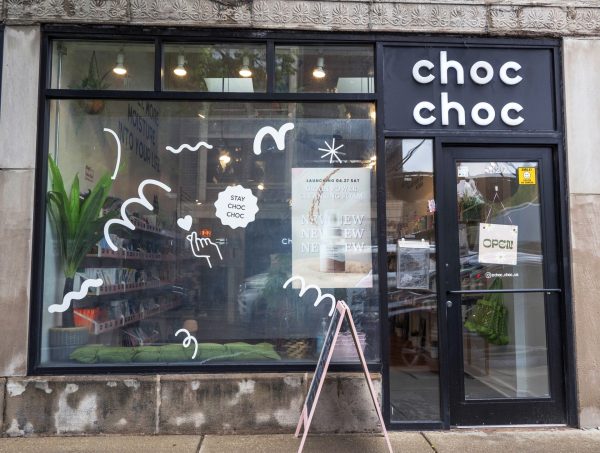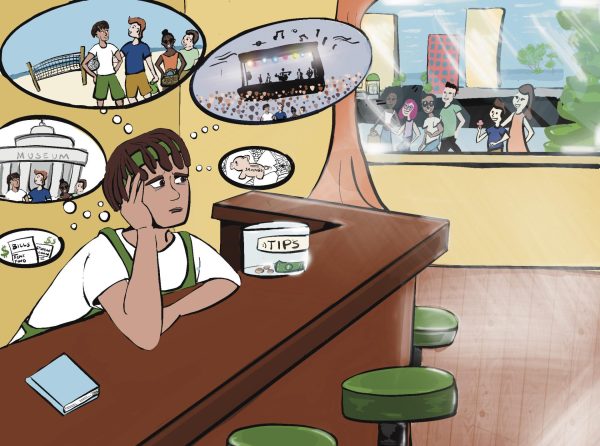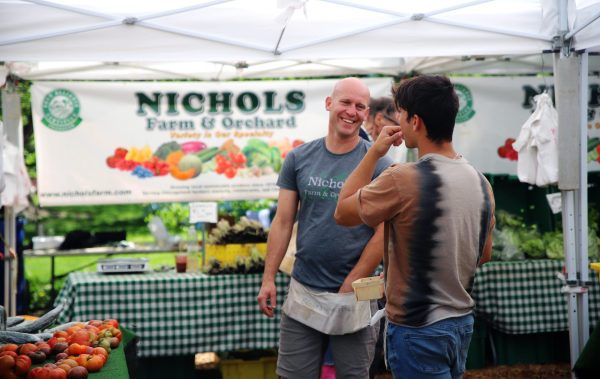Vine walked so TikTok could run
Apps come a dime a dozen, but the few that truly stick out have a cult-like following. Way back when, Vine was the “it” thing that created many memorable quotes and memes. As we waved goodbye to Vine in 2017, we stumbled upon TikTok, which was created only a year before Vine closed its doors.
If you’re unsure what TikTok is, it’s a social media app developed by ByteDance, according to Time. It’s available in 33 languages and it’s available for download on iOS and Android.
TikTok videos vary in length. They can be anywhere from 15 to 60 seconds long. Some are even as short as six seconds. Basically, anyone with a smartphone and a video idea could download the app and create whatever they want. They could even add music, sound effects and filters.
Sound familiar? That’s because this app is similar to the late Vine. Vine shut down in January 2017, according to Fortune. Vines could only be six seconds long, but again, same rules apply. Anyone with a smartphone, video idea and creativity could produce whatever content they want.
James Mourey is a professor at the Driehaus College of Business at DePaul and an expert in pop culture and social trends.
Mourey believes that TikTok wasn’t generally set out to replace Vine, but that they “realized a market opportunity that Vine never exploited,” he said. The problem with Vine was in its core appeal: super short six-second videos. While this makes for simple viewing, it doesn’t really translate well to marketable opportunities for companies or revenue generation.”
Mourey said that one could argue that TikTok is crushing it in terms of popularity – TikTok has more downloads than Vine at the moment.
“Some numbers estimate 800 million downloads compared to Vine’s 200 million – but again, that’s ‘downloads’ and not necessarily ‘engagement,”” he said.
He also said it’s easy for people to lose focus on videos that are too long.
“We know people don’t tend to watch videos any longer than two minutes, and the rise of Insta-stories and comparable alternatives have trained consumers to focus even less,” he said.
Mourey thinks TikTok will remain popular, but that they need to learn to monetize their services through ads or brand-sponsored videos. He explained what Vine’s downfall was.
“The downfall of Vine was Twitter’s inability to monetize the service,” he said. “Although it would be great if these apps could operate for free, that’s just not how business works.”
Mourey said TikTok should be able to stick around for a while, but it must have a grounded business model.
Selena Cotte is a graduate student at DePaul who recently presented her paper on TikTok and Vine at a conference.
Cotte said the major difference between the two apps is that TikTok has several editing features that Vine didn’t have. She also said TikTok is consistently being downloaded.
“TikTok has become a huge phenomenon, much bigger than Vine ever was, it seems, as it’s consistently been the most downloaded app on the App Store since sometime last year,” she said. “Also, not only does it capitalize on Vine nostalgia, it also comes at a time when people, especially younger people, are just more online than ever.”
Does it fill the void? Cotte believes it does.
“I personally believe that TikTok holds the same cultural space that Vine did,” she said. “Both platforms produce the same kind of absurd, blink-and-you-miss-it content in spite of the platform differences.”
Cotte added that the creators of Vine are beta testing Byte, which she referred to as the “official” Vine successor. With that, it could disrupt the connection between Vine and TikTok.
Paul Booth, a professor of media and cinema studies and digital communication and media arts at DePaul, believes that TikTok didn’t intend to replicate Vine entirely, and that they added their own twist with being able to add music to their videos through the app.
However, he thinks the popularity will wither when something else comes along. This generally happens with trendy apps.
“I think it will be popular for a time, and then it will lose popularity when something else comes along,” he said. “When almost any social media technology becomes big, it has a wave of popularity and then slowly loses followers.”
DePaul student Emily Trujillo misses the iconic Vine, but still adores TikTok. She thinks TikTok is just as addictive as any other social media app.
“It’s honestly a combination of Twitter and Instagram of having to scroll and watch 15-60-second videos filled with comedy,” Trujillo said.
As much as she loves TikTok, she considers Vine “iconic.”
“I think TikTok fills the void a little in the sense of still watching funny videos, but to me, it is still not as iconic as Vine,” she said.
Trujillo compares TikTok’s appeal to the way YouTube appealed to young people back in the day.
“I think TikTok appeals to much younger gens, the same way YouTube and vine appealed to us older people,” she said. “Plus, I believe that instead of playing outside younger gens have screens to play on while back then we did not really have them.”
While it looks like the two aren’t too comparable, it’s safe to say that TikTok is dominating the app stores. Hopefully, it won’t be as short-lived as Vine.













